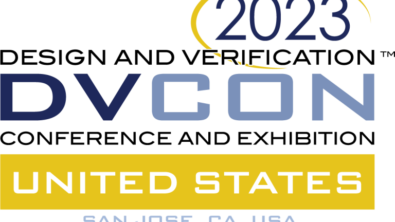UVM Forum 2015 LIVE!
Verification Academy Brings “UVM Live” to the Santa Clara Convention Center
 For everyone involved in the functional verification of electronic systems, you know about the Universal Verification Methodology (UVM) and are probably using it in one fashion or another. And if you have been reading this blog, you have undoubtedly seen blogs by Harry Foster on the adoption and use of UVM by the FPGA and ASIC/SoC community. It has clearly become the world’s most popular and accepted verification methodology. It is odd to point out that with this popularity, there has not been a UVM-only event to bring UVM users together this year. We believe it is time for UVM users to come together to explore its use and share productivity tips and tricks with each other. You are invited to register and attend. The details of the event are:
For everyone involved in the functional verification of electronic systems, you know about the Universal Verification Methodology (UVM) and are probably using it in one fashion or another. And if you have been reading this blog, you have undoubtedly seen blogs by Harry Foster on the adoption and use of UVM by the FPGA and ASIC/SoC community. It has clearly become the world’s most popular and accepted verification methodology. It is odd to point out that with this popularity, there has not been a UVM-only event to bring UVM users together this year. We believe it is time for UVM users to come together to explore its use and share productivity tips and tricks with each other. You are invited to register and attend. The details of the event are:
Event: UVM Forum – Verification Academy Live Seminar
Location: Santa Clara Convention Center, Santa Clara, CA USA
Date: 17 November 2015
Time: 8:30 a.m. – 4:00 p.m. PT
More Information & Agenda: Click Here
Register: Click Here
Experts Learn Something New
If you are an UVM Expert, and already know just about everything about UVM, you might be interested in some new topics that will be introduced and expanded upon. Here are four:
The first is UVM Framework. UVM Framework supports reuse across projects, sites and companies from block to chip to system for both simulation and emulation. Those using it have seen at least a four week reduction in verification product schedules.
The second is Verification IP. VIP can help you overcome your IP verification challenges. One session will explore integrating VIP into a UVM environment with examples based on protocols such as AMBA®, MIPI® and PCI Express®. If you are not an expert on a specific protocol, you can use VIP to drive stimulus and verify protocol compliance for you.
The third is Automating Scenario-Level UVM Test with Portable Stimulus. In this session you will learn to rise above the transaction level to make scenario creation more productive. You will learn how to leverage lower-level descriptions, such as sequence items, into larger scenarios. You will learn how to leverage graph-based methods to efficiently and predicable exercise the scenario space to deliver high quality verification results. It should also be noted, that an ongoing Accellera Working Group is exploring standardization of Portable Stimulus. While Accellera working group details are not part of the session, UVM Forum attendees might consider augmenting their knowledge by visiting the Accellera Portable Stimulus group.
The fourth is Improved UVM Testbench Debug Productivity and Visibility. For those who debug UVM on a daily basis, you might hear a common question “Are we having fun yet?” asked. The debug of UVM can be particularly difficult. We will have a session to show you how to navigate complex UVM environments to quickly find your way around the code – whether its your own or inherited. You will see how SystemVerilog/UVM dynamic class activity is as easy to debug as it is with RTL signals. Want to learn how to solve the top 10 common UVM bring-up issues with config_db, the factory, and sequence execution? Attend and you will learn.
Novices Welcome (and will learn something too!)
While I can’t promise that if you come as a novice you will leave as an expert, you can learn about UVM in the morning as one of the sessions is a technology overview to ensure you won’t be lost when the experts speak. If you know very little about UVM, the UVM Forum will help you. There will be a couple presentations from UVM users. One session is on how UVM enabled advanced storage IP silicon success (presented by Micron) and another session on UVM and emulation to ease the path to advanced verification and analysis (presented by Qualcomm).
 Still want to know more before you attend? You can also boost your UVM knowledge by attending an online UVM Basics course at Verification Academy. Visit here to learn more about the UVM Basics course. The Basic UVM course consists of 8 sessions with over an hour of instructional content. This course is primarily aimed at existing VHDL and Verilog engineers or managers who recognize they have a functional verification problem but have little or no experience with constrained random verification or object-oriented programming. The goal of the course is to raise the level of UVM knowledge to the point where users have sufficient confidence in their own technical understanding that it becomes less of a barrier to adoption – and makes the UVM Forum 2015 more meaningful for you.
Still want to know more before you attend? You can also boost your UVM knowledge by attending an online UVM Basics course at Verification Academy. Visit here to learn more about the UVM Basics course. The Basic UVM course consists of 8 sessions with over an hour of instructional content. This course is primarily aimed at existing VHDL and Verilog engineers or managers who recognize they have a functional verification problem but have little or no experience with constrained random verification or object-oriented programming. The goal of the course is to raise the level of UVM knowledge to the point where users have sufficient confidence in their own technical understanding that it becomes less of a barrier to adoption – and makes the UVM Forum 2015 more meaningful for you.
I look forward to seeing you there.


